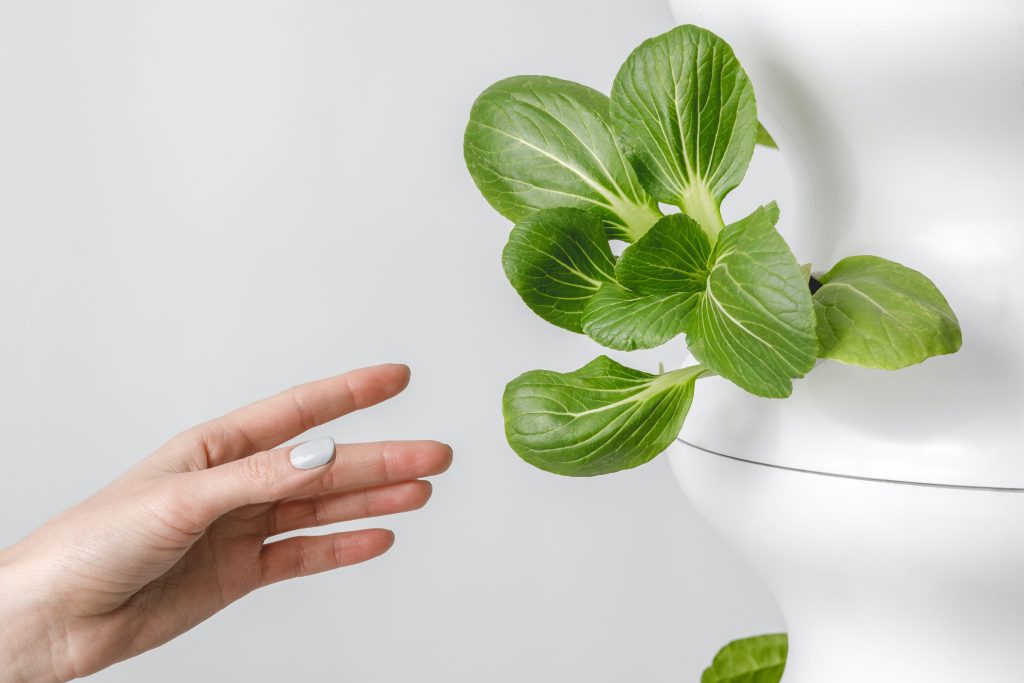
Exploring the Possibilities of Hydroponic Pineapple
We’ve all heard the song.
Whether you were a parent dreading the cloying tones of the pirate painting or a kid eagerly awaiting the antics of your favorite yellow friend, we all know the answer to “Ohhh, who lives in a pineapple under the sea?”
Well, regardless of your opinion of the citizens of Bikini Bottom, is it even possible for a pineapple to grow underwater? Today, we are going to find out.

What Are Hydroponics?
First, let’s talk about hydroponics, a method of growing plants without soil. Instead, plants are grown in a water-based, nutrient-rich solution. This method allows plants to receive the necessary nutrients directly from the water, bypassing the need for soil. There are several advantages of hydroponics over traditional farming.
Hydroponics uses significantly less water than traditional soil-based farming because the water in the system is recirculated and reused. They can also be set up in a variety of spaces, including indoors, in greenhouses, and in urban environments, making efficient use of space. Since there’s no soil, the risk of soil-borne pests and diseases is greatly reduced, potentially lowering the need for pesticides.
Another benefit is the ability to precisely control the growing environment, including temperature, light, and nutrient levels, leading to potentially higher yields and faster growth. These controlled conditions allow for year-round cultivation of plants, independent of external weather conditions.

Can You Grow a Hydroponic Pineapple?
Yes, you can grow pineapples hydroponically. Pineapples are tropical plants that are well-suited to hydroponic systems due to their relatively small root system and tolerance for various growing conditions. Growing pineapples hydroponically can offer several benefits, including faster growth, more control over the growing environment, and the elimination of soil-borne pests and diseases.
Initially, the pineapple crown can be rooted in water. Once roots appear, it can be transferred to a hydroponic system. Pineapples can be grown in various hydroponic systems, such as deep water culture or ebb and flow systems. The key is to ensure that the roots have ample access to nutrient-rich water.

How Long Does It Take to Grow Hydroponic Pineapples?
Growing a pineapple plant to fruiting stage typically takes quite a bit of time.
After planting the crown, it usually takes about 1-3 months for roots to establish sufficiently. During this period, the plant is developing its root system and beginning to grow new leaves. Once rooted, the pineapple plant enters a vegetative growth stage where it focuses on leaf development. This phase can last anywhere from 12 to 18 months, depending on growing conditions such as light, temperature, and nutrients. After the vegetative phase, the pineapple plant will eventually flower. The transition from the vegetative to flowering stage can be encouraged through environmental cues or the application of certain treatments like ethylene gas. Flowering typically occurs after the plant reaches a certain size and maturity, usually around the 18-24 month mark. Once the plant flowers, the development of the actual pineapple fruit begins. This process can take an additional 4-6 months. The fruit grows from the center of the flower spike. The pineapple is ready to be harvested when it reaches its full size, the skin turns a golden color, and it gives off a sweet aroma. The exact timing of harvest can vary based on the specific conditions in which the plant is grown. In total, from planting the crown to harvesting a ripe fruit, it generally takes about 2-3 years for a pineapple plant to produce a fruit.
However, when growing pineapples hydroponically, it typically takes between 18 and 24 months to produce fruit!
Stay Connected with Chestnut Hill Farms
Want more pineapple recipes and facts delivered straight to your inbox? Sign up for our newsletter today!


